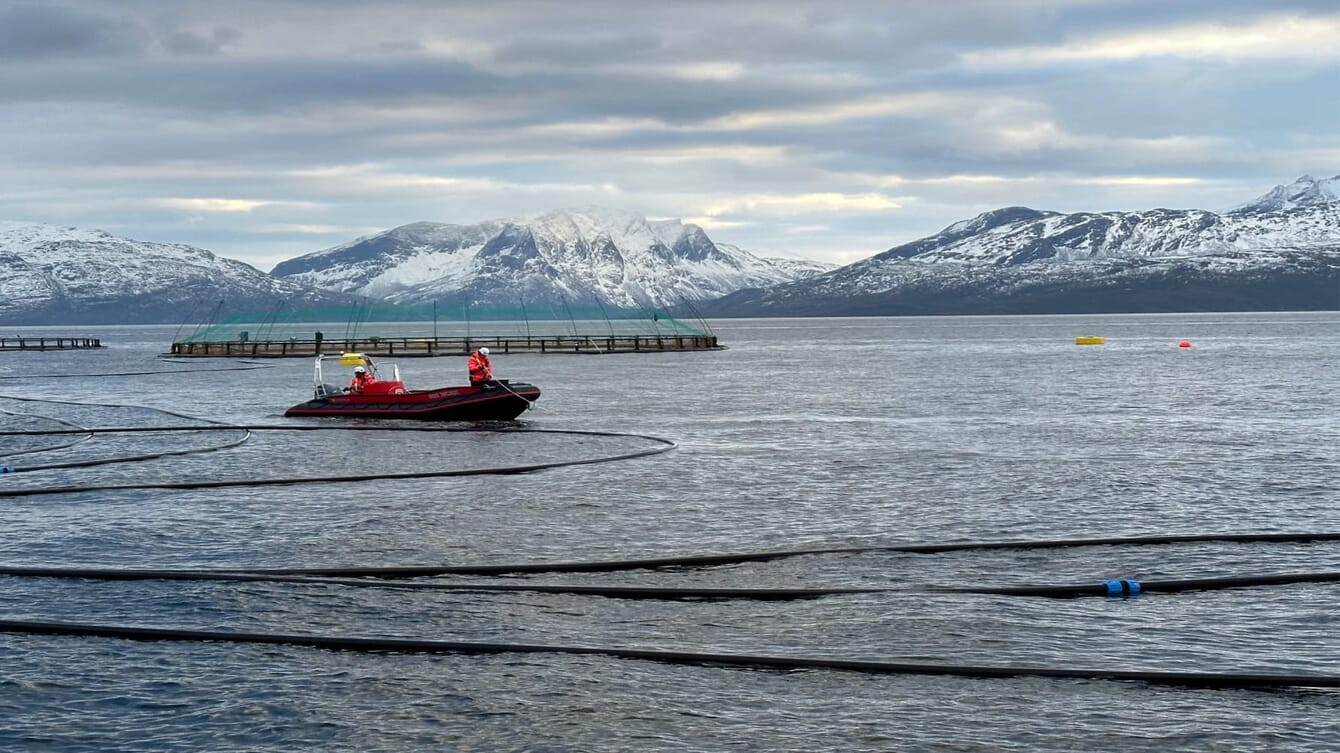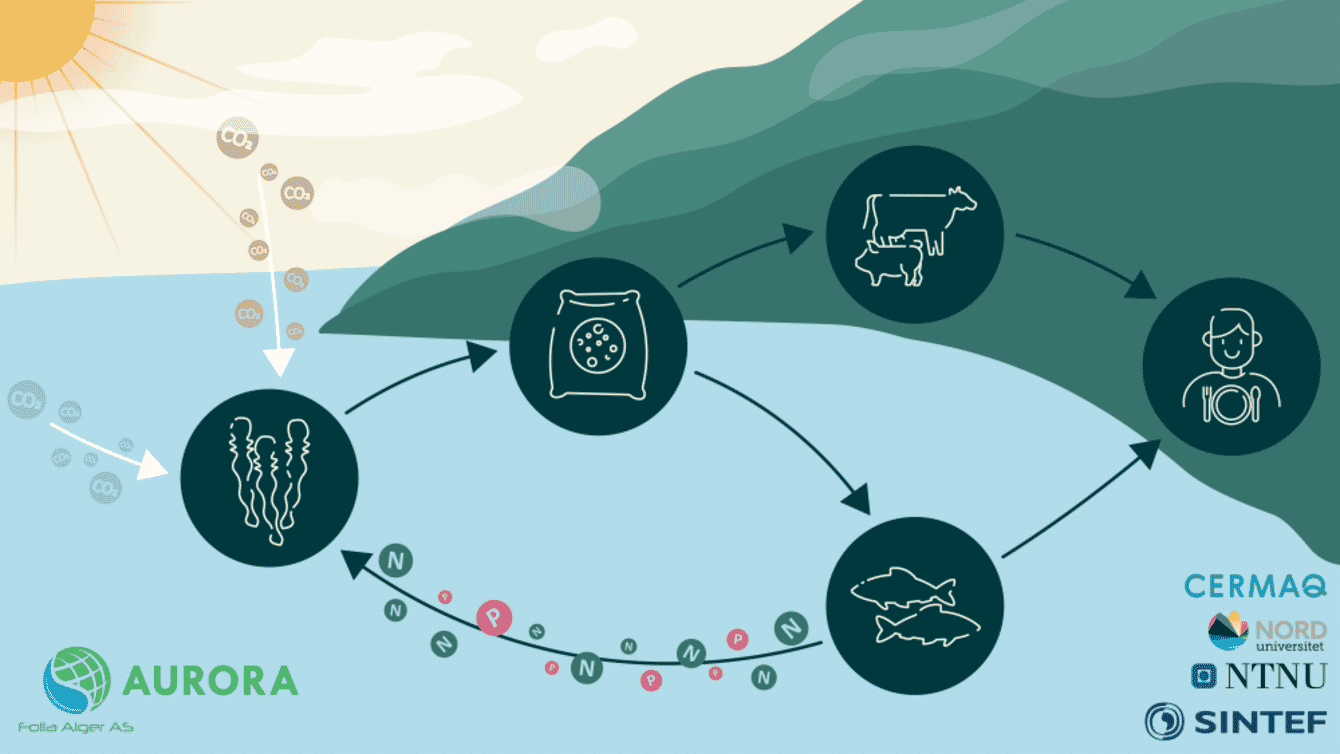
The site is unique as the kelp will be grown within the farm itself, not adjacent to it
According to Cermaq it is “the world's first sea site that has been built for the combined production of both salmon and kelp, where the kelp will be grown inside the farm itself”.
The sea site is designed as a traditional salmon farming facility with 24 cages, but with special solutions for growing kelp in the middle cages and salmon in the outermost cages on each side.
Folla Alger will collaborate with Cermaq on the salmon farming, while SINTEF Ocean has delivered the first batch of kelp.
“This area is already set aside for salmon, and by growing kelp on the same site in addition, we hope to be able to contribute to increasing value creation. This set-up allows us to use the nutrients released by the salmon in a sensible way by producing kelp, which can in turn be used as a raw material in new feed,” said Silje Forbord, research manager at SINTEF Ocean, in a press release.
“We know that we can get up to 50 percent better kelp growth by cultivating it together with farmed fish. Now we will also look at whether there are more advantages to combined operation,” she added.
“Fish farming and kelp farming are both industries for the future, and will be important contributors to the green shift,” added Tarald Sivertsen, chairman of Folla Alger.

The kelp will help to absorb waste streams from the salmon cages, including nitrogen
“This is a very exciting project for us, where we can both utilise nutrients from the net pens as a resource, and we can obtain more alternative feed raw materials. It is good circular economy. In addition, the project contributes to increased local value creation and business development, which is very positive for everyone who lives and works here,” said Cermaq's production director in Nordland, Truls Hansen
“By cultivating the kelp together with fish, the kelp gets better access to nutrition, also in seasons when there are naturally less nutrient salts in the sea in general,” said Forbord.
Some of the nutrients released from salmon net pens are water-soluble. These nutrients will fertilise the kelp. The project will also look at how kelp production affects the aquatic environment in the net pens, and what effect the combined production has on the health of the fish in the cages.
Folla Alger has been granted Research and Development licenses from the Directorate of Fisheries to carry out the project. SINTEF Ocean is responsible for the research, which will be carried out in close collaboration with Norwegian University of Science and Technology (NTNU) and Nord University.




